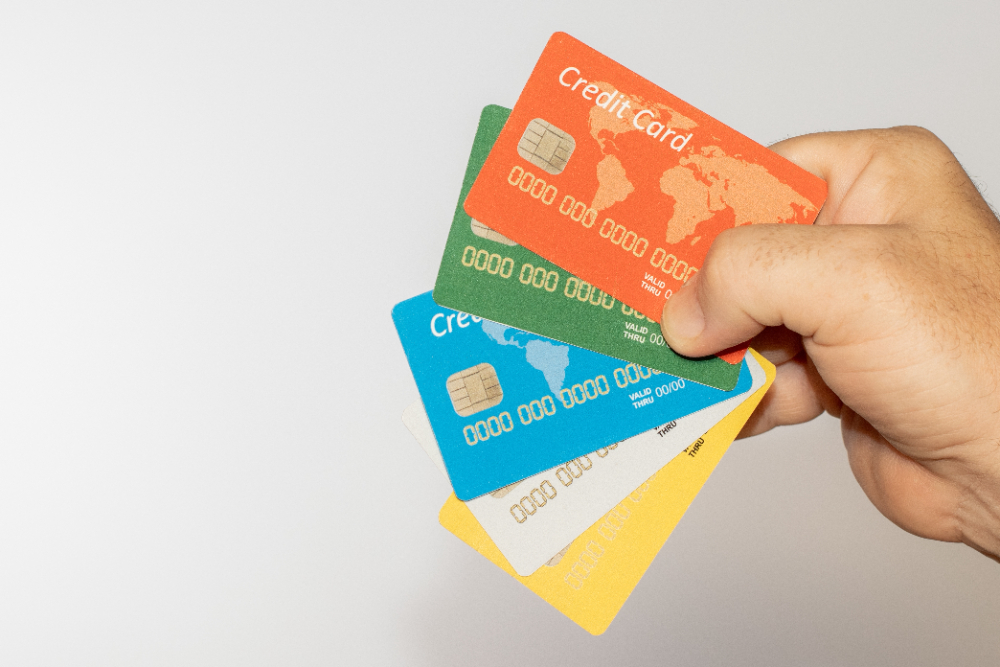Effective Tactics for Choosing the Ideal Credit Card
The credit card landscape in the United States is extensive, and grasping the nuances of each type is essential for making the optimal decision this year!
Finding the ideal credit card can be quite daunting, particularly with the abundance of choices in a credit-driven landscape like the U.S.
With options ranging from cashback rewards to travel perks or lower interest rates, determining the best fit for your financial situation necessitates careful consideration.

This guide offers effective strategies to assist you in making the right decision.
What do you need?
Consider asking yourself a few questions, like:
Understand Credit Card Types
Here are the main types of credit cards you can find in the U.S.:
- Rewards Cards: Earn points, miles, or cashback on purchases.
Recommended for: Frequent users who can maximize rewards. - Low APR Cards: These offer low-interest rates, especially for balance transfers.
Recommended for: Individuals needing to carry a balance and manage debts. - Credit Building Cards: Options available with or without a security deposit and minimal credit history needs.
Recommended for: Newcomers or those rebuilding credit, like students. - Zero Fee Cards: No annual fee, yet may have fewer features.
Recommended for: Those who use cards occasionally and seek cost-effective spending.
Assess Fees and Terms
Every credit card has associated fees and terms that could affect your financial practices. When reviewing your options, be mindful of:
- Interest Rates (APR): Look for cards with lower rates, especially if you can’t pay off your balance fully each month.
- Annual Fees: Some cards incur annual fees, but they might be justified if the benefits surpass the cost.
- Cash Advance Fees: Steer clear of cards with hefty cash advance fees.
- Foreign Transaction Fees: If you travel often, opt for cards that waive these fees.
Compare Extra Benefits
If these advantages suit your lifestyle, they can greatly enhance the value of your chosen card.
Consider the Issuer’s Reputation
The issuer’s credibility is crucial. Firms such as American Express, Chase, and Capital One are well-regarded in the U.S.
Evaluate customer service quality and the features provided, including user-friendly apps and management tools.
Understand Your Credit Score
Your credit score plays a vital role in the approval process and can influence your terms. Review your score before applying and select a card that aligns with it.
- Excellent Credit (720+): Access to the best rates and rewards.
- Good Credit (690-719): Good options are available, but fewer premium benefits.
- Fair or Poor Credit (629 or less): Focus on secured cards or those with fewer requirements.
Avoid Applying for Too Many Cards at Once
Submitting multiple credit card applications can lead to inquiries on your report, which may temporarily decrease your score.
Focus on applying for cards that are more likely to approve you to minimize adverse effects on your credit history.
Use Online Comparison Tools
Websites dedicated to comparisons provide tools that streamline finding the right card for you.
Input your preferences and spending habits for tailored suggestions.
Tips for Efficient Card Use
Avoid carrying over balances whenever possible. Utilize apps to track your expenses and stay within your budget.
Join loyalty programs to enhance your rewards. If your credit score improves, reach out to your issuer for better terms.
Selecting the best credit card in the U.S. requires careful research, self-awareness, and a keen eye for details.
Implementing these clever tactics will enhance your readiness to make knowledgeable choices, enabling you to enjoy the perks of credit while safeguarding your financial stability.





